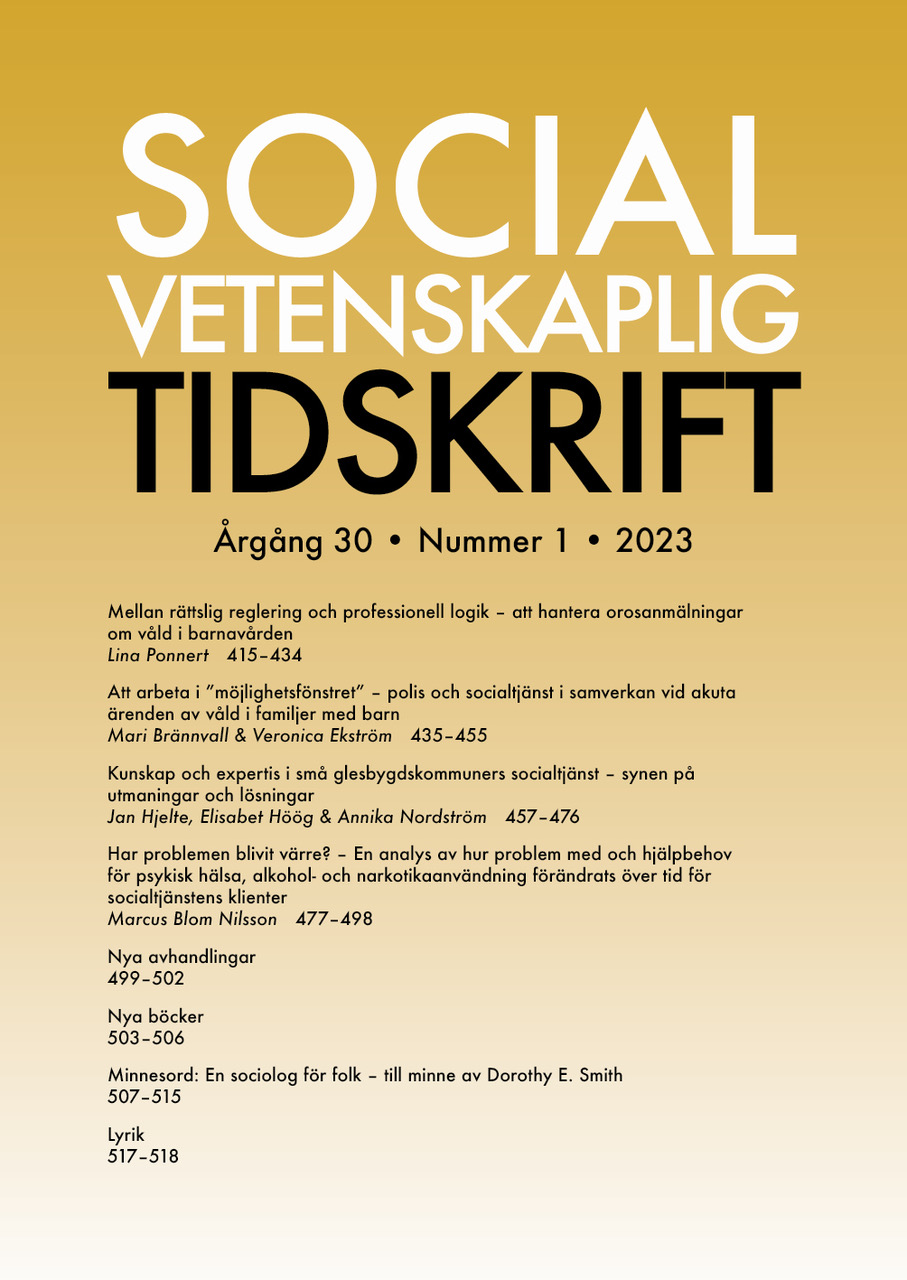Kunskap och expertis i små glesbygdskommuners socialtjänst
– synen på utmaningar och lösningar
DOI:
https://doi.org/10.3384/SVT.2023.30.1.4116Nyckelord:
rural social services, challenges, knowledge and expertise, collaborative solutions, digital solutionsAbstract
Knowledge and expertise of social services in small rural municipalities - the view on challenges and solutions.
Small rural municipalities face major challenges in the area of welfare. One of these challenges is about providing knowledge and expertise within social services. As a result of its small scale, social services in rural areas have an integrated organisation where social workers are supposed to work with a wide range of social problems. At the same time, there are expectations that they should have expertise in defined areas. This article focuses on how representatives of social services in eight rural municipalities view the opportunities to provide knowledge and expertise.
Data collection was carried out within an action research project in connection with conferences and workshops. The results show that it can be challenging to develop knowledge and expertise. Since social services mainly have an integrated organisation, it is difficult to keep up-to-date on the state of knowledge in all areas. Another challenge is that it can be difficult to maintain skills in practice because certain types of cases are encountered relatively rarely.
To deal with the challenges, different collaborative solutions are seen as a way to balance expectations on knowledge and expertise, and to balance the expectations of knowledge and expertise with the conditions that prevail in rural environments. The attitude towards different kinds of digital technology – for example web-based education and supervision – as tools for knowledge development and access to expertise is consistently positive. The results also indicate that digital technology has the potential to change the perspectives on the organisation of knowledge development and expertise within social services in rural municipalities.
An overall interpretation of the results is that social services in rural areas must deal with different challenges in terms of knowledge and expertise than social services in larger and more densely populated areas. Therefore, the possible solutions are also different.
Downloads
Publicerad
Referera så här
Nummer
Sektion
Licens
Copyright (c) 2023 Jan Hjelte, Elisabet Höög, Annika Nordström

Det här verket är licensierat under en Creative Commons Erkännande 4.0 Internationell-licens.
Allt material i Socialvetenskaplig tidskrift publiceras sedan 2022 (Vol 28 Nr 2) med omedelbar öppen tillgång (open access), under Creative Commons-licensen CC BY 4.0. Upphovsrätten till innehållet tillhör respektive författare.
Allt innehåll i tidskriften är fritt tillgängligt utan kostnad och får fritt läsas, laddas ned, kopieras, delas, skrivas ut och länkas. När innehållet används måste författare, källa och licens anges. Författaren kan fritt göra sin publicerade text tillgänglig på institutionella och internetbaserade arkiv, exempelvis sitt lärosätes digitala arkiv eller andra tjänster för detta.
Inga publiceringsavgifter tas ut vid publicering i Socialvetenskaplig tidskrift.


